Brexit and Wales: One month on
- Published
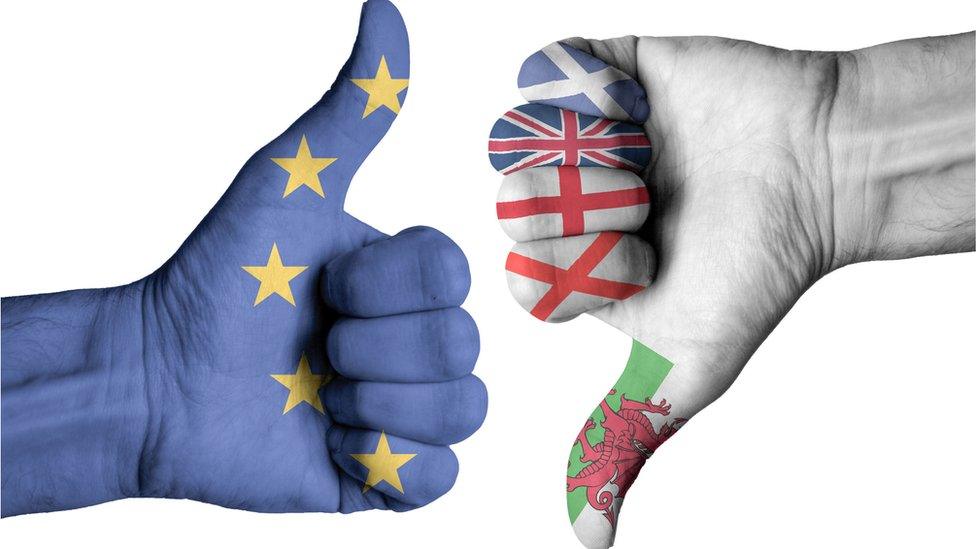
It has been a month since Wales voted to leave the European Union.
The response from many in that time has been: "Let's get on with it."
That view was shared by the First Minister Carwyn Jones until recently when he altered his opinion and said that we should only start the official Brexit negotiations in the early part of next year.
My sense is that the public will be flexible on the timing up to a point, as long as they are given a clear sense of direction.
The majority of the political establishment have had to come to terms with the fact that most people ignored their advice to remain. So much for being in touch with the electorate.
In conversations with politicians on the remain side since, I have come across a mix of bewilderment, frustration and sadness.

Clwyd West MP David Jones celebrated after another area votes Leave on referendum day
And while people like me spend a lot of time talking and writing about a Welsh political dynamic, on this subject at least, Wales was a carbon copy of England.
In stark contrast, those that supported leaving feel vindicated by their campaign, and now believe they are the ones in touch with vast swathes of the population.
The referendum result was a devastating indictment of the effectiveness of the billions of pounds of EU funds spent trying to regenerate economically deprived communities.
The brutal reality is that those who were most likely to vote to leave lived in communities where most EU money had been spent.
It is an extraordinary paradox that raised eyebrows far further afield than Wales.
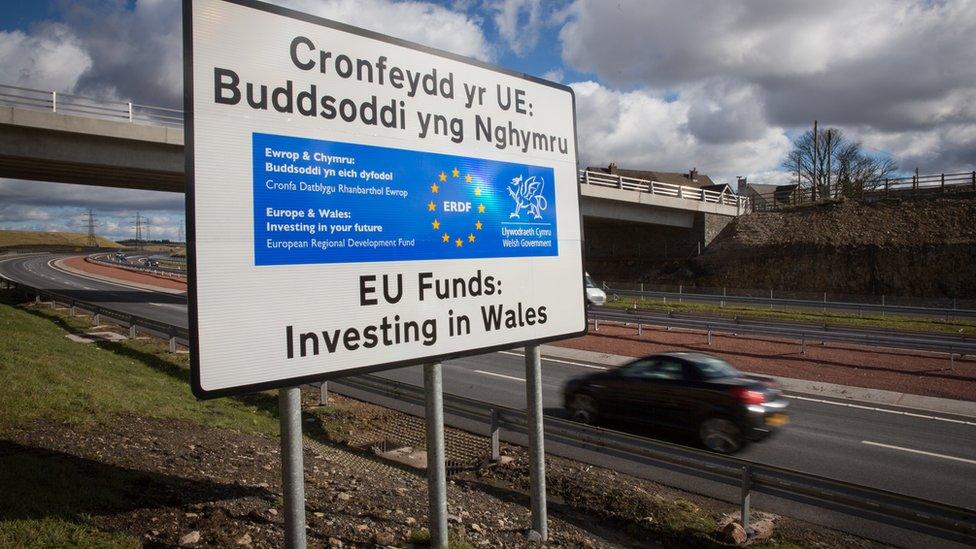
The early stages of a debate about replacement funding has got under way. The Welsh Secretary Alun Cairns, a Remain campaigner, led the way by wasting no time in calling for a fundamental change in approach.
Brexit means the Wales Office may have been given a new sense of purpose, and no more so than in regeneration funding.
There's been little meat on the bone but his fundamental premise is that everything has to change, and simply writing a Westminster cheque rather than a Brussels cheque will not cut it.
The early signs are that the Wales Office would like to play a part redesigning a new funding system. This will not go down well with the Welsh Government but the come-back from Westminster will be that officials in Cardiff have not done a good job spending the money.
There will be something just as fundamental going on regarding financial support for the farming industry.
This is a devolved matter so the Welsh Government will have a far stronger sense of entitlement to owning any new system that is introduced.
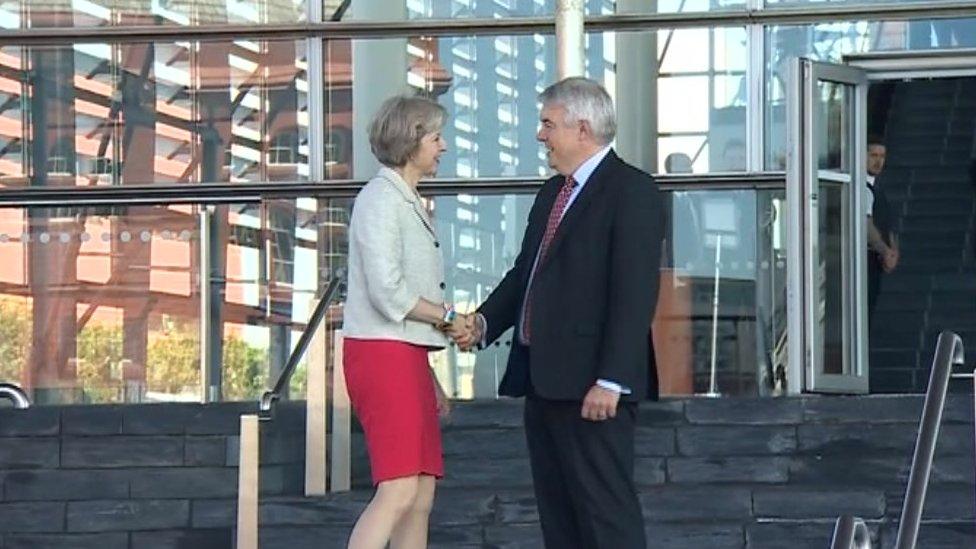
Prime Minister Theresa May said she wants the Welsh Government to be "involved and engaged" in Brexit negotiations
So far there have been plenty of warm words about being in listening mode but not much in terms of concrete proposals, or even ideas, about how to create a new system of agricultural subsidies.
And finally, what about the Welsh economy? Those who express concern about the impact of Brexit are criticised by Leave campaigners for creating a self-fulfilling prophecy.
When the chairman of the Welsh Conservatives, Jonathan Evans, a fiercely pro-European politician, talked openly to me about recession, there were a number from within his own party who were deeply unhappy at the tone.
But how do you then deal with the facts of the matter regarding things like inward investment, when most companies have come to Wales because of our membership of the single market?
That was the elephant in the room when the Welsh Government's Economy Secretary Ken Skates spoke about a renewed focus on promoting Wales abroad in light of the Brexit.
It is a huge hurdle to overcome, and something that will depend on the effectiveness of the trade deals that Brexiteers like Boris Johnson and Liam Fox will now have to strike with countries around the world.
At the same time, there are strong indicators in the Welsh economy, with a continued trend on unemployment in Wales which is remarkable. The norm has been for a number of months that the rate in Wales is lower than the UK average, reversing years of it being the other way round.
The underlying strength of the Welsh economy will be tested in the months ahead with the inevitable uncertainty that will accompany the start of negotiations.
- Published30 December 2020

- Published20 July 2016
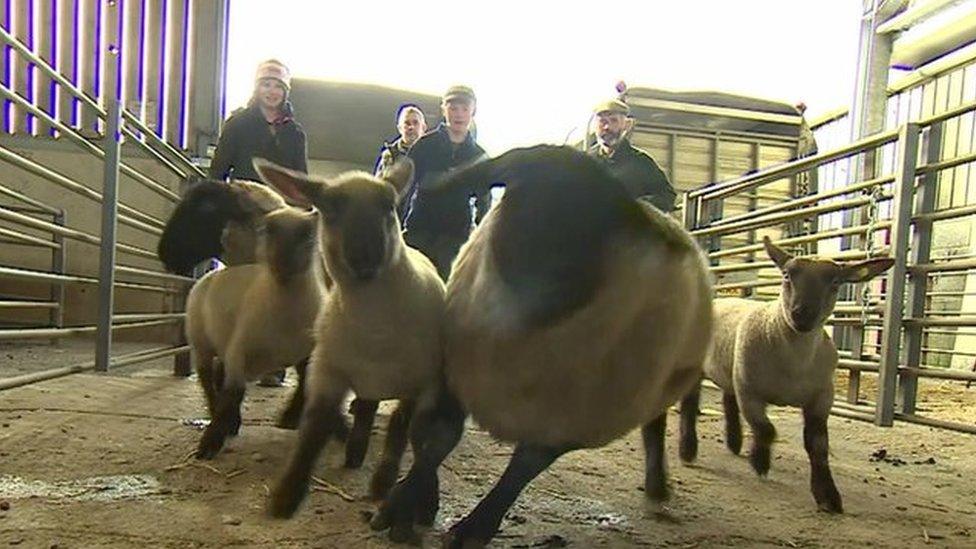
- Published18 July 2016
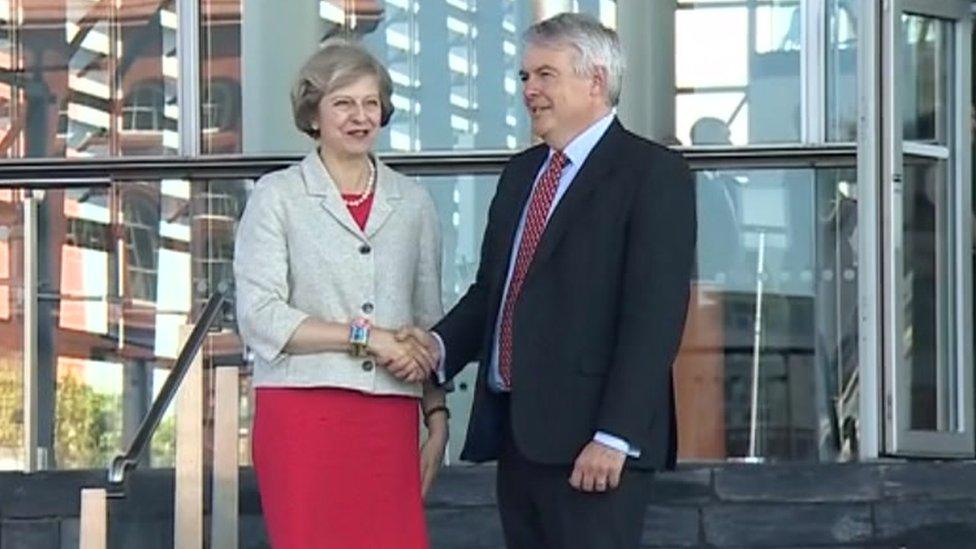
- Published18 July 2016
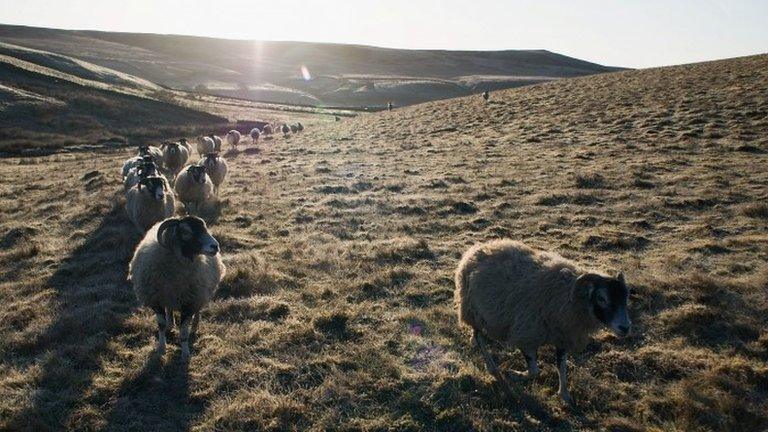
- Published15 July 2016
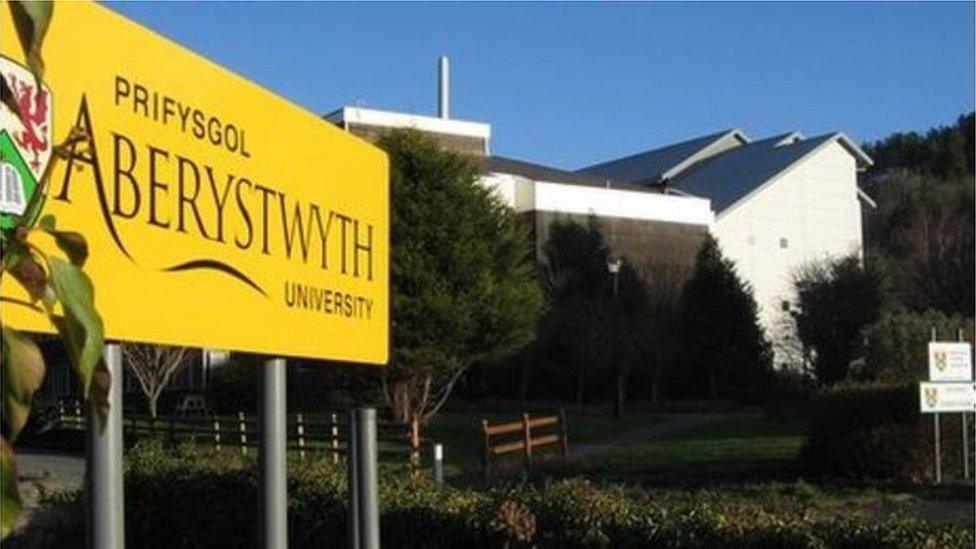
- Published12 July 2016
